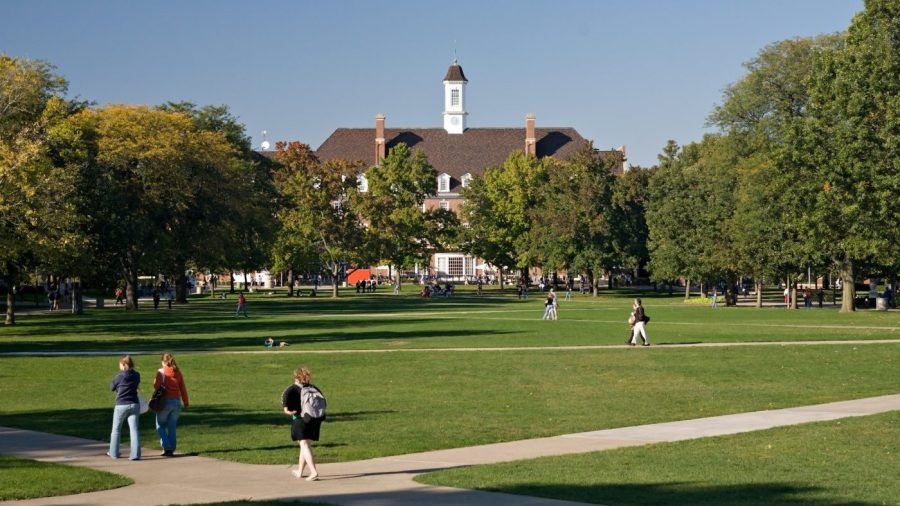
We live in humorless times, and yet the need to laugh seems more vital than ever.
Conversations on college campuses are tense right now, if they happen at all. I have taught on a university campus for close to two decades, but only recently have I started to give some consideration to comedy as a serious source of study.
In 2020, when the pandemic hit and teaching went virtual, I struggled to keep my undergraduates engaged. COVID-19 crippled us to the core, and my students’ minds were perpetually elsewhere. Eventually, they felt fatigued by doom and gloom. That’s when I decided to test out some humor.
Never a confident comedian, I initially felt awkward. However, the light-hearted laughter came with patience and time. Having learned from my stepson that many members of Gen Z appreciate puns, I started with verbal irony and progressed from there. Certain jokes didn’t resonate — and they still don’t — but I have learned over time to roll with the punches.
Today, I weave humor into everything and, as an English professor, I find so many promising parallels between jokes and narratives. As the humanities increasingly becomes a target in our data-driven world of deliverables and returns on investment, the study and practice of humor has the potential to enhance and enrich higher education.
Humor studies, an interdisciplinary field that extends from literature and writing to business and health care professions, has grown over the past decade or so. A Google Scholar search reveals that 2010 produced many pieces on pedagogy and comedy. Learning through laughter became a prevalent theme 15 years ago, but nothing that I can find considers humorous healing through higher education during our turbulent times on college campuses.
Still, humor is a subject of widespread interest among both those in academia and the larger public. As the world welcomes Pope Leo, I came across a New York Times opinion piece by his predecessor titled “There is Faith in Humor.” Pope Francis argues that laughter is central to living, just as humor humanizes us. The piece also emphasizes the centrality of comedy to Catholic faith, interfaith conversations and social justice.
Humor and comedy take courage, of course, and also coincide with creative and critical thinking.
Amidst concerns about campus censorship, the study of humor is central to both the liberal arts and pre-professional programs. Students come to my classes believing that serious literature is dry and grim, but my message to them is that deep learning can come from a serious examination of funny narratives and situations.
This idea often resonates not only with English majors, but with future business leaders and health care professionals who see laughter as crucial to lifelong learning and their future careers. Allison Beard’s 2014 Harvard Business Review piece “Leading with Humor” convincingly argues that a sense of humor in managers and directors can go a long way to diffusing conflict and leading with conviction.
Humor is also tied to human survival, even during the darkest days. Holocaust survivor Viktor Frankl writes in “Man’s Search for Meaning” that “humor was another of the soul’s weapons in the fight for self-preservation.” Although Aristotle distinguishes the two in “The Poetics,” one of the earliest works of literary criticism in the Western tradition, the ancient Greek thinker claims that comedy is never very far from tragedy.
Steve Allen, the first host of “The Tonight Show,” said that “comedy is tragedy plus time.” Though it may seem challenging, today’s times are appropriate for humor. In this age of artificial intelligence, humor humanizes our writing and teaching. Context is crucial, of course, as is sensitivity to language.
The next generation of learners can certainly benefit from this focus on lifelong learning through laughter, which in many ways is the freest form of expression.
Cara Erdheim Kilgallen is an author and associate professor of English at Sacred Heart University.


